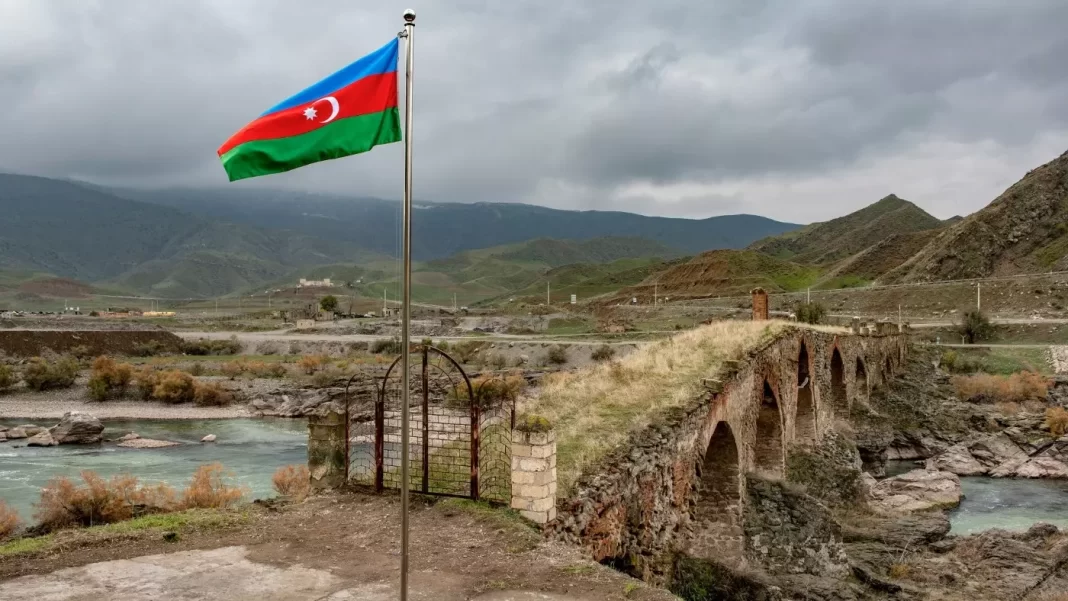The South Caucasus is experiencing heightened tensions between Russia and Iran. Central to this conflict is the proposed Zangezur corridor, a transport route that would connect Azerbaijan to Turkey and Russia while bypassing Armenia. This project is raising significant geopolitical concerns for Iran.
The Zangezur Corridor Explained
The Zangezur corridor aims to link Azerbaijan’s exclave of Nakhchivan to Turkey and Russia. Supporters of the corridor, including as Foreign Minister Sergey Lavrov, have voiced their belief that it is an essential route for trade between Europe, Asia, and the Middle East. Iran perceives this plan as a strategic threat to its borders and regional influence.
Iran’s government, under its new reformist leadership, summoned the Russian ambassador to express its concerns. An Iranian foreign ministry source stated that this direct meeting conveyed Iran’s dissatisfaction with Moscow’s position. They believe the corridor would infringe on Iran’s territorial integrity.
Iran’s Position on the Corridor
The Zangezur corridor would run through Armenia’s Syunik province. Azerbaijan demands full control over the route, which Iran vehemently opposes. Iranian officials argue that such control would effectively alter Iran’s borders, potentially isolating it from Armenia. The Iranian government insists that the corridor must remain under Armenian jurisdiction to maintain its border with Armenia.
Iran has a historical presence in the Caucasus, and any shifts in control are viewed as threats to its national interests. Tehran emphasizes that any military response would be considered if its borders were compromised.
Aftermath of the Nagorno-Karabakh Conflict
The Zangezur corridor gained traction following Azerbaijan’s victory in the 2020 Nagorno-Karabakh conflict. This conflict shifted the geopolitical balance in the region, causing deep unease in Iran. The alliance between Russia and Azerbaijan following this war has intensified Iran’s concerns about its northern borders.
As Russian influence grows, Iran’s new president, Masoud Pezeshkian, is set to meet President Vladimir Putin at the Brics summit in Kazan on October 22. Observers expect this meeting to focus on cooperation rather than confrontation, although underlying tensions will persist.
Balancing Relations with Russia
Despite its opposition to the Zangezur corridor, Iran aims to manage its relationship with Russia carefully. An Iranian foreign ministry source noted that while Tehran occasionally accepts Russian requests, it also maintains its sovereignty. Iran has refrained from aligning with Russia on issues like Abkhazia and Crimea, showcasing its independent stance.
Iran is also working on improving the Aras corridor, an alternative route that connects Azerbaijan to Nakhchivan. This upgrade aims to enhance transit options for various countries, potentially positioning the Aras corridor as part of a broader East-West trade route.
Strategic Competition in the Zangezur Region
Analysts in Iran view the developments around the Zangezur corridor as part of a larger pattern of increasing Western and Israeli influence near Iranian borders. There are concerns that this would strengthen the Turkic world and marginalise Iran’s position. Iran’s historical grievances stem from losing territories in the 19th century due to wars with Russia. Current geopolitical shifts are prompting fears that Iran could be further isolated.
Iranian experts argue that Russia’s interests may increasingly conflict with Iran’s. While Russia seeks stability through routes in the South Caucasus. Its actions may inadvertently bolster NATO’s presence in the region, which Iran views as a threat.
The situation surrounding the Zangezur corridor highlights the complex and often fraught relations between Russia and Iran. As geopolitical dynamics shift in the South Caucasus, both nations must navigate their interests carefully. Iran’s focus on maintaining its borders and sovereignty will continue to shape its foreign policy in this strategically vital region.

